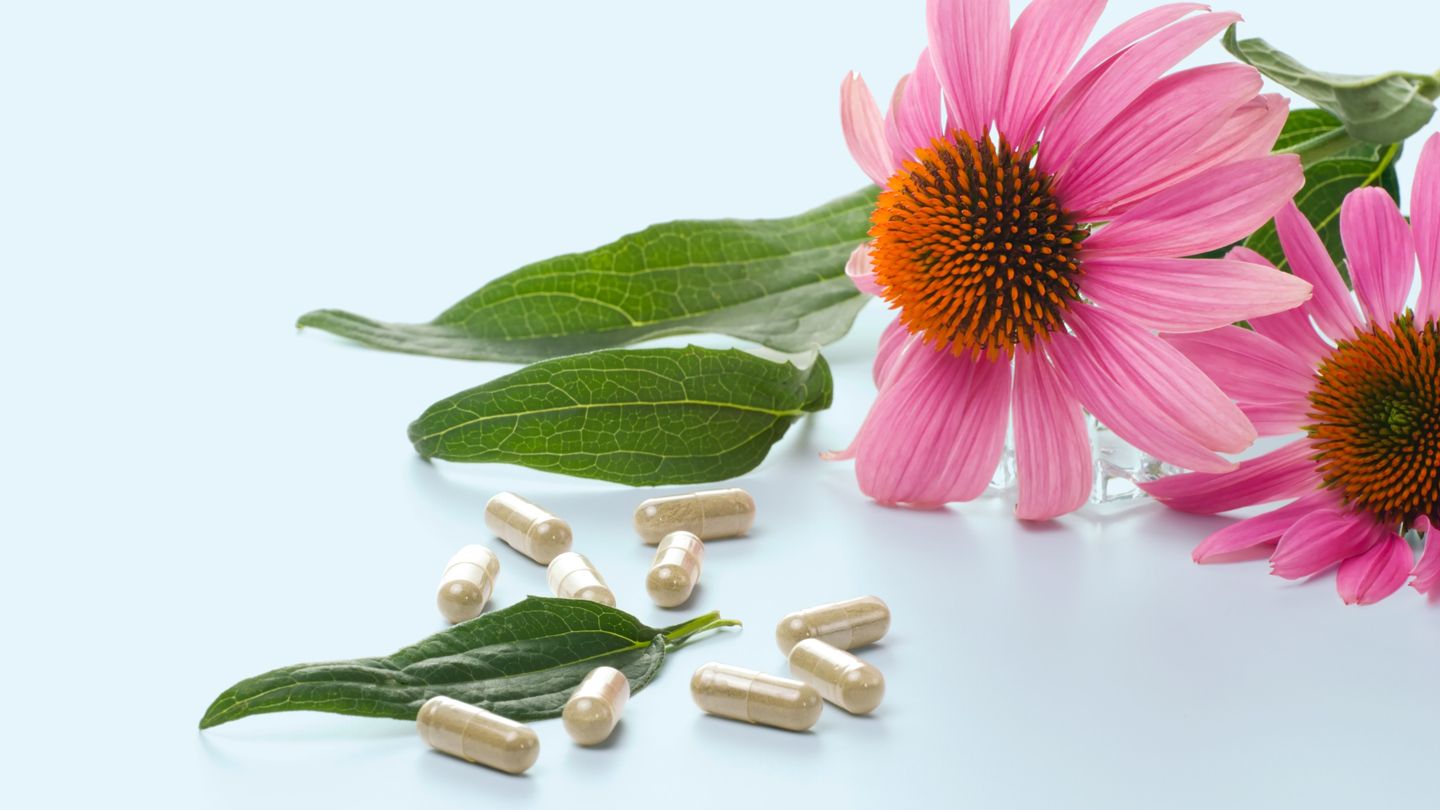Even though there is a lengthy history of echinacea’s medicinal uses, there isn’t a sizable stack of high-quality studies backing these claims. Echinacea remains a popular supplement, even without conclusive evidence, partly because of its long-standing use.
The aforementioned Committee on Herbal Medicinal Products in Europe, for instance, approved echinacea to prevent and treat the common cold based on its “well-established use” in this regard in the absence of definite evidence.
“All studies on echinacea have mixed results,” explains Julie Stefanski, RDN, a spokesperson for the Academy of Nutrition and Dietetics in Baltimore. She explains that supplements aren’t standardized, so the amount of active ingredient in each dose may be different from one brand to the next.
May Treat and Prevent Colds
After reviewing six eligible studies, one meta-analysis found that echinacea can shorten the length of a cold (by as much as five days, according to one study). The same meta-analysis did not find that echinacea was effective in preventing a cold or minimizing its severity.
“Studies have shown that echinacea can reduce the risk of getting a cold and decrease how long a cold lasts,” says Stefanski. But not everyone will see the same results. “The response to using echinacea to reduce cold symptoms may vary based on the potency of the product used and individual responses of people’s immune systems,” she notes.
May Prevent Respiratory Tract Infections
Echinacea lowered the duration of symptoms of respiratory tract infections (which include the common cold and flu) in adults who were given higher-than-normal doses of echinacea, according to a recent study.
“While this study supports that echinacea may help to reduce the duration of respiratory tract infections, the amount of echinacea used was much higher than what is typically found in over-the-counter products and needs further research to determine an ideal amount of echinacea extract,” notes Stefanski.
May Limit COVID-19 Infections
Evidence of echinacea’s effect on COVID-19 is still very limited, though one previous study showed that a specific dosage of Echinacea purpurea can have an effect in preventing respiratory tract infections, including COVID-19. The study also suggested that echinacea might reduce viral load.
“While the amount of research on echinacea and COVID-19 has increased, the common mutations that the corona-type virus has undergone make it difficult to produce consistent research results,” Stefanski says.
Regarding research suggesting that echinacea may help with COVID-19 infections, Stefanski says that “while these outcomes are promising, they are still very limited in the number of people studied and long-term use of supplementation is still unknown.” More research is needed to determine echinacea’s possible benefits with different COVID-19 mutations.
Read the full article here




